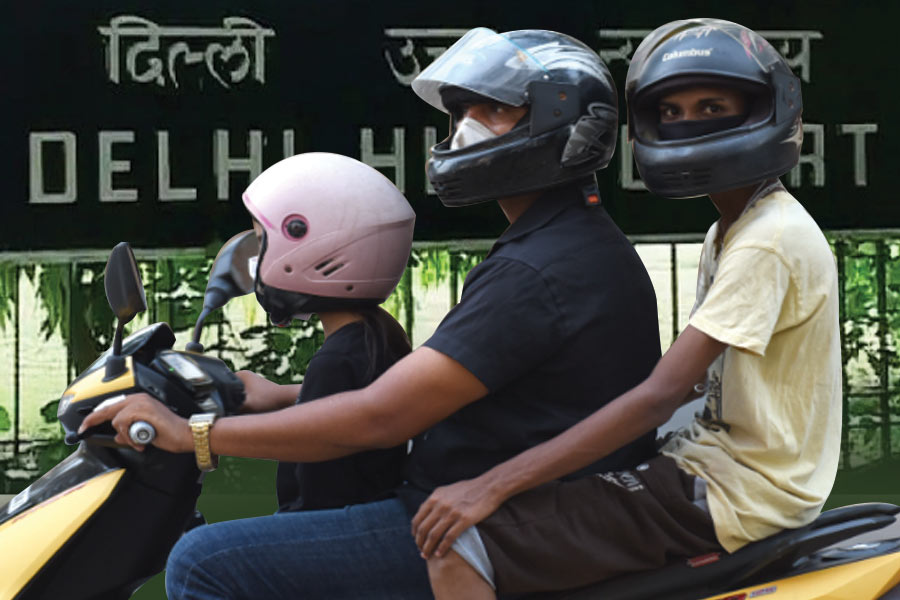The Delhi High Court Thursday said existing rules on mandatory insurance cover, wearing of headgear on two-wheelers and penal action for non-compliance are already applicable to electric vehicles.
The high court directed the Delhi government to continue ensuring that the subsidy offered by the government for electric vehicles registered in the national capital is being disbursed in a timely manner.
The high court’s order came while dismissing a public interest litigation (PIL) seeking directions to the authorities to make insurance cover compulsory for electric two-wheelers in accordance with the provisions of the Motor Vehicle Act.
The PIL also sought the court’s direction to the authorities for mandatory wearing of helmet on all types of electric motorcycles and scooters.
A bench of Chief Justice Satish Chandra Sharma and Justice Subramonium Prasad said the PIL was filed solely on the basis of two news reports and the claims, allegations and issues raised by the petitioner largely remain unsubstantiated and that such “frivolous PILs”, instead of enabling access to justice, actually hinder it by “wasting precious judicial time”.
“Had there been some due diligence exercised and research done on the part of the petitioner, it would have been apparent that the issues raised by the petitioner in the instant PIL have already been addressed through relevant statutes, rules and notifications,” the bench said in its judgment.
It said the doctrine of PIL has been developed by courts through various judgments to address issues of public interest and to aid those who have been caused public injury or whose fundamental rights have been infringed and grievances have gone unnoticed.
“However, it is often seen that frivolous PILs are filed before the courts which cause significant delays in disposing of cases of genuine litigants with legitimate grievances.
“While this court is cognisant of the purpose for which the doctrine of PIL has been developed, it must also ensure that persons do not abuse the liberal rules pertaining to PILs and waste precious judicial time of this court,” the bench said.
The court advised the petitioner to exercise necessary diligence and restraint before filing such PILs in the future.
Petitioner Rajat Kapoor, an advocate, submitted in his plea that under Section 146 of the MV Act, it is compulsory for a person to obtain an insurance policy against third party risk caused by the use of a motor vehicle.
He contended that the provision does not cover EVs and that the Delhi Electric Vehicles Policy, 2020 covers a variety of issues pertaining to EVs. However, the same does not cover the issue of insurance policy to be obtained in respect of EVs by those wishing to use them.
Delhi government additional standing counsel Anuj Aggarwal told the court that the subsidy offered for EVs registered in the national capital is being duly disbursed in a timely manner on a priority basis.
Aggarwal submitted the term “Battery Operated Vehicles” is defined under Rule 2(u) of CMV Rules and, therefore, EVs are covered under the MV Act and the rules framed thereunder.
“As the relevant provisions of the MV Act and Central Motor Vehicles (CMV) Rules are already applicable to EVs, specifically pertaining to mandatory insurance cover, wearing of headgear on two-wheelers and penal provisions for non-compliance of the provisions, this court is of the opinion that no orders or directions are required to be passed in this respect,” the bench said.
It said similarly, as the Union of India has already prescribed standards to be followed by manufacturers for batteries to be used in battery operated vehicles/ EVs, there is no need for any orders or directions to be passed by this court.
Except for the headline, this story has not been edited by The Telegraph Online staff and has been published from a syndicated feed.











